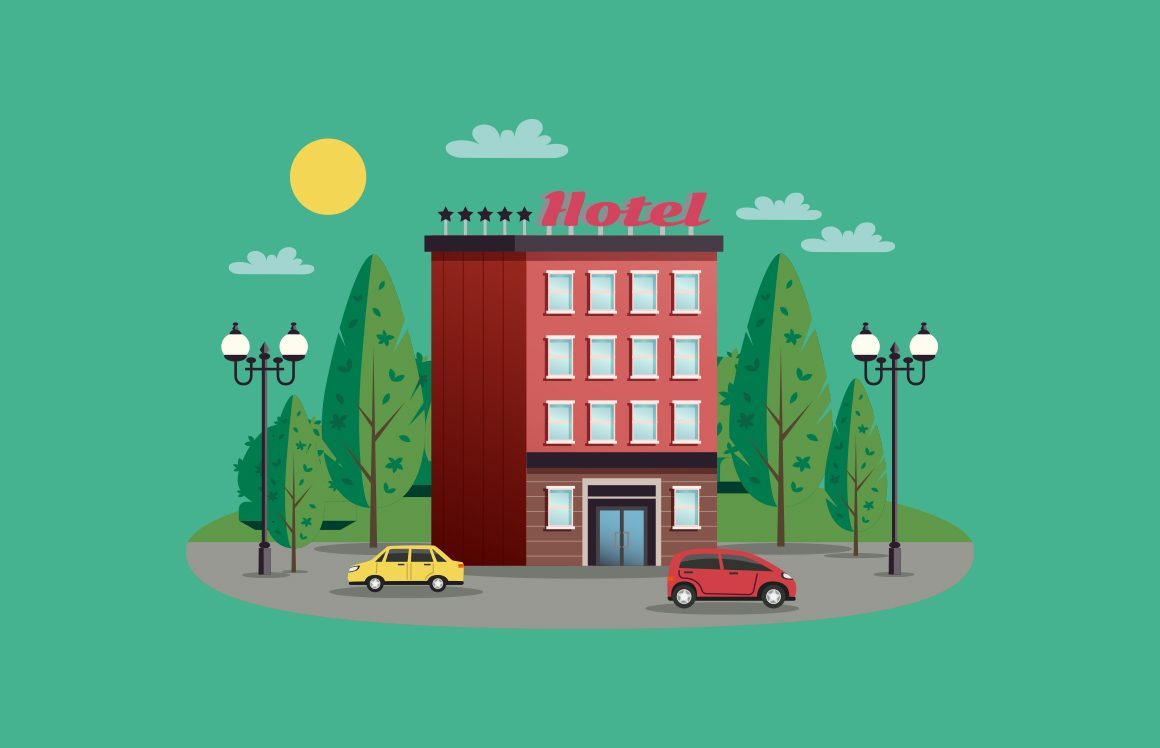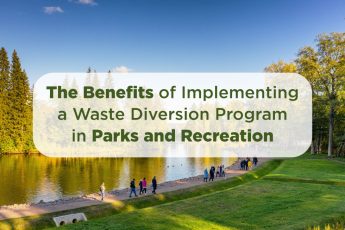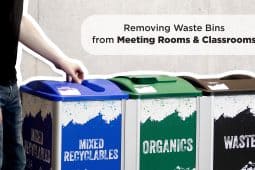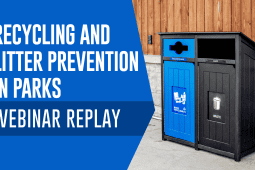For more information on how to build an exceptional recycling program for your hotel resort, click here.
*This blog was updated October 2024 which you can view here.
An overview of the Economic, Social & Environmental benefits associated to building a solid resort waste management program.
Guest expectations during a hotel stay are changing rapidly. In a competitive business that strives to fill its rooms every night, sustainability has emerged as a great way to step ahead of the competition. While this does not currently afford the ability to charge a premium rate for green hotel assets, positive feedback on guests’ comment cards indicates the value of including hotel guests when forming a hotel’s sustainability initiatives.
According to a survey of 72,000 Hilton guests, about 33 percent said they prefer hotels with environmental and social programs. Not surprisingly, among guests younger than 25, that number jumped to 44 percent.
Besides polishing your green image, hotels also have the incentive of reducing how much they spend to haul away waste. The hotel industry has a long history of waste reduction—most notably, recycling and composting. Recycling is a popular practice due to the fact that many recycling methods can yield significant savings in a short period of time.
Hotels, motels, resorts, lodges and inns welcome millions of visitors per year. With their assortment of guest rooms, kitchens, offices, conference centers and laundries, these facilities also produce a lot of waste. Guest rooms alone can produce up to 28 pounds per day, depending on the type of property and number of occupants.
Luckily, much of the waste generated day-to-day at any guest-hosting facility is recyclable.
Experienced lodging managers have found that developing a waste reduction and recycling program significantly improves their image and saves them money quite rapidly. Improving your waste management program supports a community shift towards shared zero waste goals and benefits all parts of society:
Economic Impact
The economic impact of implementing a strong waste management program at your resort is two-fold:
Improved Occupancy Rates
A survey of 1,300 U.S. travelers by TripAdvisor.com shows that nearly two-thirds of travelers, 62 percent, often or always consider the environment when choosing hotels, transportation and meals. The survey, also shows that 69 percent say they plan to make even more eco-friendly choices in the next 12 months.
Long story short, if a guest has a choice between a resort with a lackadaisical sustainability program vs. one with a solid sustainability strategy, more often than not will the guest choose the more sustainable choice. This is not a groundbreaking revelation, but it amplifies the importance of having a successful waste management program in place due to its significant role in the overall sustainability strategy.
Drastically Reduced Waste Removal Costs
Trash removal costs can be exorbitantly expensive in areas such as dense cities or remote areas. By removing paper, plastic and other recyclables from the waste stream, hotels can cut their waste disposal bill by as much as 50 percent.
As an example, one lodging manager for a boutique hotel mentioned “In New York City, it’s not unusual to have a $100,000-a-year waste bill, and if you can cut that by $50,000 that’s a big deal to the operator of a hotel.”
Another example is the community of Whistler, B.C, which has a large portion of their community built around high occupancy resorts and multi-family residences. Here’s an excerpt from their Zero Waste Solutions Guide:
The costs associated with the collection, transportation and processing of waste are rising and this trend is expected to continue. Tipping fees are paid by private waste removal companies, often referred to as “waste haulers”. Understanding tipping fees can help to identify the financial incentives for keeping recyclable and organic materials out of the garbage. In 2017 –
- The tipping fee for garbage increased from $130 to $140 per tonne.
- The tipping fee for mixed waste – garbage containing more than 25% recyclable materials, clean wood, organics or yard waste – increased from $260 to $300 per tonne, which is more than double the cost of uncontaminated garbage.
- The cost of organic remained at $75 per tonne, nearly half the cost of garbage.
- Tipping fees for recyclable materials including glass, rigid and film plastic, paper, cardboard and metals continue to be covered through extended producer responsibility (EPR) programs. Businesses and properties that reduce waste better position themselves to decrease waste management costs over the long term.
Whistler’s movement to focus on the low-hanging-fruit of implementing a strong organics/compost program in their community has drastically reduced their waste removal costs.
Social Impact
Strong waste management programs contribute to the overall health and well-being of a community.
- Sustainable resorts, hotels, motels, resorts, lodges and inns that use recycled materials, will be more likely to establish ties or open up branches in a town that has a vested interest in recycling.
- Fewer landfills means better property values, as well as the knowledge that your community is actually working to mitigate global warming.
- Lodgings that actively recycle send the message that they really do care about the environment.
- Green actions show a community commitment to a greener future, which can help to empower residents and guests to further personal actions.
- Setting a green standard in the community creates more jobs. These jobs support a shared transition to a more sustainable and resilient society. In fact, the Institute for Local Self-Reliance reports that industries engaged in sorting and processing recyclable material employ 10 times more people than traditional waste disposal firms do.
Environmental Impact
The environmental impacts of recycling are plentiful, but let’s focus again on the low-hanging fruit of implementing an organics program at your resort. Some people believe that food will simply decompose once in landfill, but this is not true. Diverting organic waste from your resort waste stream has many ecological benefits, including, but not limited to the following:
- Reducing methane emissions, a greenhouse gas 21 times more potent than CO2.
- Minimizing the formation of leachate, a toxic runoff which threatens ground and surface water.
- Returning nutrients to soil, which both improves soil health and reduces the need for chemical fertilizers.
- Boosts the ability of soil to retain water and decreases runoff.
Organics aside, landfills are a primary contributor to the greenhouse gas output of the United States. Decomposing garbage generates methane, which is about twenty times more effective than carbon dioxide at trapping heat in the Earth’s atmosphere, according to the Environmental Protection Agency. With that said, all the waste generated at your lodge ends up in landfills and has a direct negative impact on climate change.













